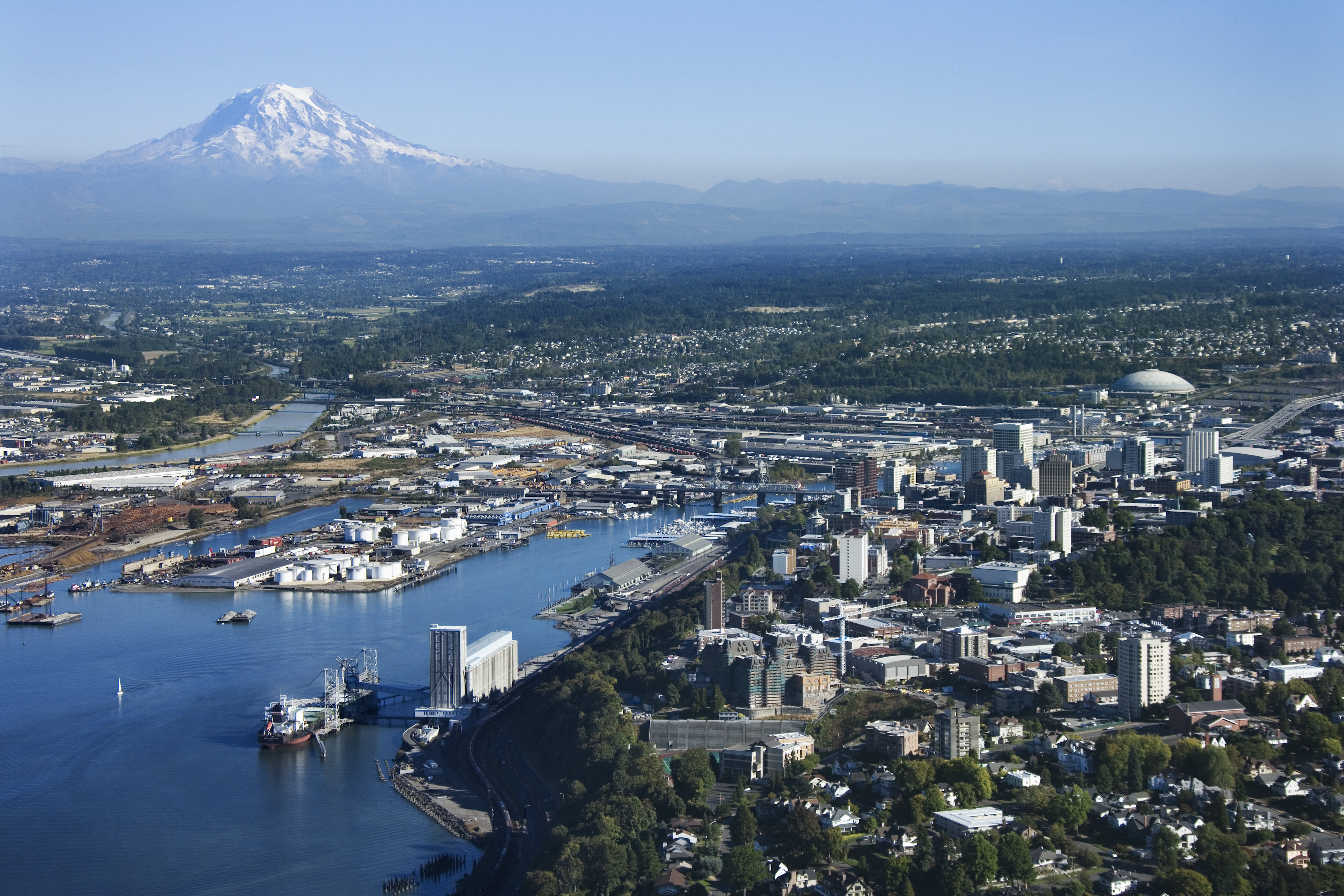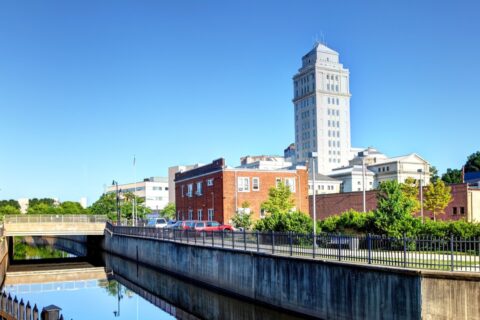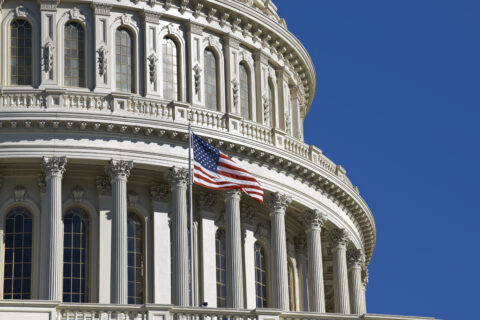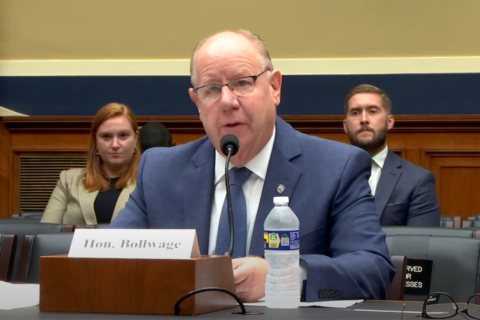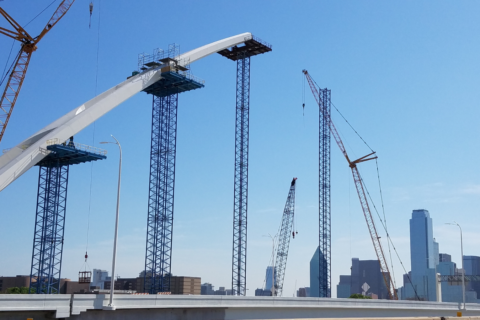City leaders have been presented with a once-in-a-generation opportunity to invest in infrastructure, clean energy, and advanced manufacturing through the Bipartisan Infrastructure Law (BIL), officially known as the Infrastructure Investment and Jobs Act (IIJA). These investments are expected to generate nearly three million jobs each year over the next decade, but NLC’s research shows hiring for infrastructure jobs is a significant challenge today. There is a tremendous opportunity to diversify the infrastructure workforce. The Department of Labor reports that despite being almost 50 percent of the workforce, women make up only 10.9 percent of the construction workforce – with only 4.2 percent of those working in skilled construction trades occupations – and 29.3 percent of the manufacturing workforce. Through strategic investments in workforce development, local leaders have an opportunity to make a difference in a short amount of time.
City Spotlights: Leveraging Brownfields Job Training Investments
The BIL tripled funding for the U.S. Environmental Protection Agency’s (EPA) Brownfields Program to assess, cleanup and redevelop contaminated sites, or brownfields. The Brownfields Job Training Grant program invests in local recruitment, training, and placement for unemployed and underemployed residents from communities disproportionately burdened by environmental harm. In the latest round of funding, cities took advantage of the opportunity to leverage these historic investments to maximize the economic and environmental benefits to their residents.
City of Rochester, NY
The City of Rochester, a Justice40 Community1 serving approximately 210,000 residents, is taking a significant step towards strengthening pipelines in their environmental sector by establishing a new Brownfields Environmental Skills Training program. Building upon the success of the Rochester Environmental Job (REJob) program, this initiative aims to train and place at least 82 individuals in environmental jobs and demonstrates a focus on job placement and ensuring the long-term success of trainees in their chosen careers. After completing the training, students will earn up to one state and three federal certifications, enhancing their employability in the environmental sector.
In response to the award announcement, Mayor Malik D. Evans noted that, “The City of Rochester is thankful to the U.S. Environmental Protection Agency for supporting our goal of making Rochester a green, sustainable community while providing jobs to our residents that will enhance the neighborhoods in which they live. Cleaning up brownfields in our community for future investment and supplying the environmental-construction field with a trained workforce will greatly enhance our efforts to create a safe, equitable, and prosperous Rochester where everyone can reach their full potential through personal, professional, and generational growth.”
City of Tacoma, WA
The City of Tacoma, a Justice40 Community serving approximately 219,00 residents, is dedicated to providing training and support to residents for over 20 years through the Local Employment and Apprenticeship Training Program (LEAP), highlighting their commitment to building a skilled and capable local workforce. This Brownfields Job Training grant will enable the City of Tacoma to build upon this legacy and place at least 79 graduates in environmental jobs. With the support of local partners, LEAP has been and will continue to be instrumental in tackling unemployment in Tacoma and leveling the playing field for residents seeking quality careers. Reflecting on previously awarded job training grants, Deborah Trevorrow, contract and program auditor with the city of Tacoma, shared the story of a participant who went through the training and today serves as a division manager at Tacoma Water. It’s stories like these that excite her most about the opportunity unlocked by the recent award!
In response to the award announcement, NLC President and Mayor of Tacoma, Victoria Woodards shares, “I am thrilled and honored that the EPA selected Tacoma to receive one of 29 awards of $500,000 that will support our LEAP program in providing free training for environmentally focused green jobs for the next five years. Creating livable, family wage jobs is a priority for our Council, and this grant will help us to achieve that goal and provide a valuable pathway for our historically marginalized residents.”
Beyond workforce-specific grant opportunities, cities are uniquely positioned to leverage and amplify the impact of BIL investments for their local infrastructure by prioritizing workforce development strategies that support economic opportunity.
Policy: Cities can ensure that local workers not only work on public projects but have opportunities to upskill and improve their wages. For example, the City of Bellingham, WA’s municipal code requires that public works projects utilize apprenticeships – creating opportunity for the next generation of workers.
Procurement: Local government can embed into their procurement processes. The City of Los Angeles, CA’s Living Wage Ordinance, which applies to all city contracts extending over three months or exceeding $25,000. The ordinance mandates contractors pay a living wage as well as requires that they provide employees with generous paid time off.
Planning: As cities prepare for more sustainable infrastructure and development, leaders must consider and plan for what is required to build a climate-ready workforce. The City of Columbus, OH’s Sustainable Columbus team has not only incorporated green workforce development into their climate action plan, but also the necessary financial supports and accountability mechanisms.
As we celebrate the opportunities BIL has created for communities, we know this is just the start! The National League of Cities is here to support local government leaders as they navigate new and emerging funding opportunities. To learn more and to engage with NLC on this topic, contact educationexpandedlearning@nlc.org. To see a complete list of local government award winners under BIL, visit NLC’s Rebuilding America Dashboard.
Federal Resources
The Administration has released several resources that can be leveraged by local leaders as they work to address workforce challenges across all infrastructure sectors and seek to embed workforce strategies in their grant applications:
- Equitable Workforce Development for Infrastructure Jobs
- Tools for Building an Equitable Infrastructure Workforce: Gender Equity Strategies as a Model
- Grant Application Checklist for a Strong Transportation Workforce and Labor Plan
1 A Justice40 Community is defined by the Administration as a disadvantaged community that is marginalized, underserved, and overburdened by pollution. Justice40 indicators in this blog series are categorized by the municipalities census tracts being all Justice40 qualifying or the project being in or adjacent to a designated Justice40 census track.
